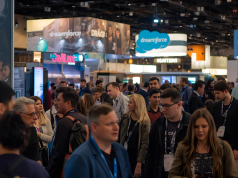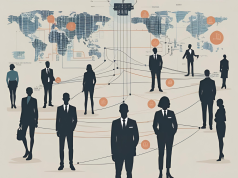As dawn breaks over the horizon of the business world, the rumblings of artificial intelligence (AI) and automation technologies signal a seismic shift in the landscape of work. The echo of this transformation resonates with both promise and perturbation for the human workforce. What role will we, as flesh and blood, play in a future interwoven with silicon and circuitry? How must we adapt and evolve to not just survive, but thrive alongside our increasingly capable mechanical counterparts?
At the heart of this revolution lies a question that is as old as labor itself: What is the role of the human worker in an age where machines can learn, adapt, and execute with precision once thought the sole remit of human ingenuity? The juxtaposition of AI and human jobs is not a battle foretold with a determined victor; it is a complex dance that requires a nuanced understanding of our value as workers and the adaptable nature of employment itself.
The rise of AI presents both risks and opportunities. On one hand, the specter of job displacement looms large. The McKinsey Global Institute predicts that by 2030, intelligent agents and robots could eliminate as much as 30% of the world’s human labor. Yet, on the other hand, this same technology holds the potential to create new industries, catalyze efficiencies, and enhance the productivity of the workforce, leading to the emergence of careers we have yet to imagine.
In response to these changes, upskilling becomes critical. A workforce equipped with the skills to harness the power of AI will be at an advantage. Educational institutions, businesses, and individuals must focus on fostering a culture of continual learning and adaptability. Skills in data analysis, digital literacy, and machine-human interaction will become the currency of the new economy.
Yet, the challenges are not solely in the economic domain; they extend into the ethical arena. How do we navigate the moral labyrinth of AI-driven unemployment? What measures can be taken to ensure a fair transition for those whose roles may be rendered obsolete?
History may offer a lantern in the dark woods of the unknown. The industrial revolution, while disruptive, eventually led to a rise in new forms of employment and advancements in the quality of life. Perhaps, by studying the past, we can chart a course through the uncertainty, anticipating disruptions, and mitigating adverse impacts while sowing the seeds of future growth.
The AI revolution in the workplace beckons a renaissance in the way we perceive work, workers, and the workplace. It impels us to consider the emergent synergy between humans and machines, framing this alliance not as a rivalry but as a partnership that can elevate the potential of both. As we stand at the brink of this new era, it is incumbent upon individuals, businesses, and policymakers to engage in strategic planning and ethical introspection, ensuring that the path forward is marked by progress, inclusion, and humanity.
This exploration serves not only as a contemplation of what lies ahead but as a call to action. The future of work is not a distant prospect—it is unfolding now, under our watch. The decisions made today will ripple through the economies and societies of tomorrow. We must embrace the wave of change with foresight and determination, crafting a workforce that is resilient, resourceful, and ready for the renaissance of work that AI promises to catalyze.




























